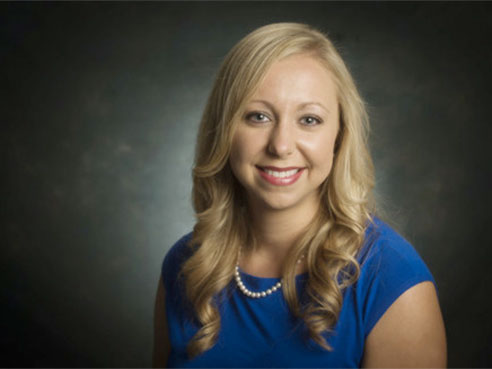 Aaron Fobian, Ph.D., assistant professor of psychiatry.Overexposure to media — television, Facebook, smartphones — may be disrupting teen sleep patterns. And according to researchers at the University of Alabama at Birmingham who are launching a study into teen sleep and media exposure, disruption of sleep might lead to more than just tired, grumpy teens.
Aaron Fobian, Ph.D., assistant professor of psychiatry.Overexposure to media — television, Facebook, smartphones — may be disrupting teen sleep patterns. And according to researchers at the University of Alabama at Birmingham who are launching a study into teen sleep and media exposure, disruption of sleep might lead to more than just tired, grumpy teens.
“We know there is a relationship between sleep and obesity, but the relationship is not well-understood,” said Aaron Fobian, Ph.D., assistant professor in the Department of Psychiatry in the School of Medicine at UAB. “We do know that obesity is a risk factor for diabetes. The goal of this study is to see if improving sleep reduces risk factors for obesity and diabetes.”
Fobian says current obesity interventions, such as improving energy balance, physical activity and diet, are often ineffective for long-term weight loss.
“Sleep, if shown to be a risk factor, may be an important addition to new obesity treatments designed to prevent the increasing risk of Type 2 diabetes,” Fobian said. “Fix sleep and perhaps we can fix a whole cascade of events that follow from poor sleep.”
Fobian’s study will assess how changes in media exposure and habits can improve sleep. The study team will recruit 60 teens between the ages of 15 and 17 and their parents. Half will be randomized to a control group who will receive study skills training that focuses on how to organize material, prepare reports and prepare for test taking. Those subjects will have four one-hour sessions, once a week for four weeks, along with screening and follow-up visits.
The intervention group will receive four one-hour sessions aimed at improving sleep and decreasing nighttime media use. The study will also use Actigraph accelerometry monitors to confirm sleep duration.
“We will monitor changes in sleep during the period, and take additional measures of health factors such as glucose, insulin sensitivity, weight and body composition,” Fobian said. “We will be looking to see if changes in sleep duration correlate with media usage, and if changes in sleep show a change in factors associated with diabetes risk.”
Study subjects will also get a DEXA full-body X-ray scan at the start of the trial and again three months after the study.
Eligible study participants need to be between the ages of 15 and 17, sleep less than eight hours a night on average, and be overweight. Participants and their parents will be paid up to $400 for their participation.
Those interested in participating in the sleep study should contact Aaron Fobian at 205-975-4205. The study is funded by a grant from the National Institute of Diabetes and Digestive and Kidney Diseases, part of the National Institutes of Health, and the American Heart Association.